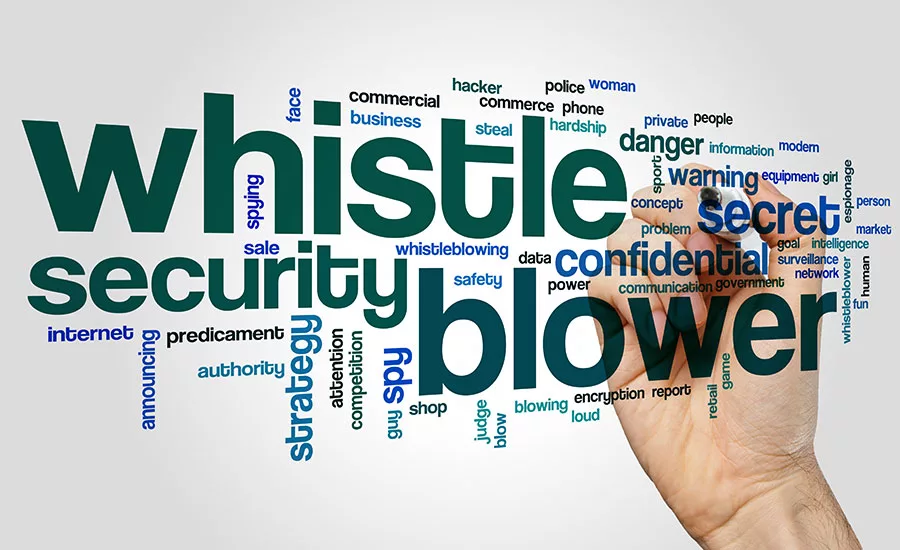It's Time to Embrace Cybersecurity Whistleblowers

Organizations that have long ignored their deficient data security may fear cybersecurity whistleblowers, but, in fact, they should welcome them. By creating a safe culture for whistleblowers to report internally, organizations can avoid following in the footsteps of Yahoo and becoming the next victim of a high-profile and catastrophic data breach. Ignoring cybersecurity whistleblowers or, even worse, subjecting them to retaliation will not fix data security problems. Instead, it will only result in increasing an organization’s legal exposure and driving cybersecurity whistleblowers to report externally.
Real-World Cybersecurity Whistleblowers
Over the past five years, we have represented a steady stream of cybersecurity whistleblowers who faced retribution after they reported their employers’ serious cyber vulnerabilities. One of our first cybersecurity whistleblower clients was an experienced chief information security officer (CISO) for a publicly traded company that provided financial products. The company hired the CISO to address its neglected information security program. The CISO’s assessment of the company’s data security system showed that it was riddled with vulnerabilities that exposed the company’s data to hackers. When he revealed his findings to the company’s senior leadership, they refused to accept his assessment because they were unwilling to invest the money necessary to adequately secure the company’s data. To demonstrate the accuracy of his assessment, the CISO engaged an outside auditing firm, which confirmed his findings and recommendations. In response, senior leadership demanded that he direct the auditing firm to water down those findings. After the CISO refused to do so, he was demoted and soon thereafter terminated.
In another case, a cyber risk executive for a large software and hardware company identified several deficiencies in the company’s cyber controls. She informed the company’s leadership of her findings and recommended significant changes to the company’s cybersecurity posture. In response, a senior vice president threatened to fire her if she did not water down her recommendations. Refusing to be intimidated, she made a follow-up report to other senior executives, indicating that she was concerned that the company was misrepresenting its cybersecurity posture to its customers to avoid losing their business. Instead of addressing the problems she identified, the company immediately terminated her.
Each of these companies made the same mistake: They shot the messenger. When senior leadership saw the scope of their company’s vulnerabilities, they failed to look past the immediate price tag to see the value in addressing the company’s cybersecurity problems.
Cybersecurity Whistleblowers Have Legal Protections
This response is not just shortsighted – it’s illegal. The CISO’s termination violated the anti-retaliation provision of the Sarbanes-Oxley Act of 2002 (SOX). SOX protects employees of publicly traded companies from retaliation for reporting, among other things, violations of any rule or regulations of the U.S. Securities and Exchange Commission (SEC). SEC regulations require financial institutions to take certain steps to ensure the security and confidentiality of consumer data. Since the company was a financial institution, the CISO engaged in protected activity when he reported data vulnerabilities and sought to correct his company’s cyber posture. When the company terminated him because of those efforts, it violated SOX.
The cyber risk executive was protected under state law from wrongful termination. Her reports constituted protected activity because she was objecting to the company’s intentional misrepresentation of its data security posture to its client. This intentional misrepresentation constituted fraud under state law. When it terminated her for reporting fraud, the company engaged in wrongful termination in violation of public policy.
Neither of these whistleblowers were forced to go to court to vindicate their legal claims. Due to the strength of their legal claims and the sensitivity of the subject matter, both clients reached a private resolution with their former employers that compensated them for the economic and emotional harm they had experienced and protected their professional reputations.
Government Whistleblower Rewards Programs Available to Cybersecurity Whistleblowers
Most cybersecurity whistleblowers report vulnerabilities or misconduct to protect the public, not to pursue personal gain. Nevertheless, there are several government rewards programs designed to provide incentives to whistleblowers to report unlawful conduct to regulators and law enforcement.
In the cybersecurity context, the SEC whistleblower rewards program created by the Dodd-Frank Act is the most relevant. The SEC has made clear that it considers the cybersecurity of publicly traded companies and registered investment firms and advisors to be a priority. In the past two years, it levied fines against Morgan Stanley Smith Barney LLC and R.T. Jones Capital Equities Management for failing to adequately protect customer data. Under the SEC program, cybersecurity whistleblowers who provide original information to the SEC that leads to an enforcement action resulting in over $1 million in monetary sanctions are entitled to receive an award of 10 percent to 30 percent of the amount collected. The SEC whistleblower reward program launched in 2011 and has already awarded approximately $149 million to 41 whistleblowers.
The U.S. Commodity Futures Trading Commission (CFTC) administers a smaller whistleblower program that rewards individuals for information about violations of laws relating to commodity futures. The intersection between commodity futures and cybersecurity primarily relates to cybersecurity testing and safeguards for derivatives-clearing organizations, swap data repositories and specified designated contract markets. As with the SEC program, a whistleblower who provides the CFTC with original information resulting in over $1 million in monetary sanctions is entitled to receive 10 percent to 30 percent of the amount collected.
Cybersecurity whistleblowers with evidence of fraud against the government may be able to bring a lawsuit under the False Claims Act, known as a qui tam action, that would entitle the whistleblower to 15 percent to 30 percent of the monies recovered. As government regulations and requirements related to cybersecurity increase, it is likely that such opportunities will similarly increase.
Companies Need to Encourage Internal Reporting
In the long run, failing to adequately address cybersecurity issues can result in significant costs. For example, Yahoo now faces an SEC investigation into whether it violated securities laws by failing to notify investors of the data breaches more promptly. The data breaches and related legal liability have also resulted in Verizon decreasing the amount it has offered to acquire Yahoo by $350 million. By empowering employees to speak out about issues before a data breach, organizations can avoid incurring such high costs, substantial legal liability and public embarrassment.
Making it safe for employees to report cybersecurity problems internally also ensures that whistleblowers are not forced to report externally as a means of protecting the public. Many of our cybersecurity whistleblower clients only reported their employers’ cybersecurity-related misconduct to regulators or law enforcement once it was clear that their employers refused to address the problem.
Looking for a reprint of this article?
From high-res PDFs to custom plaques, order your copy today!










